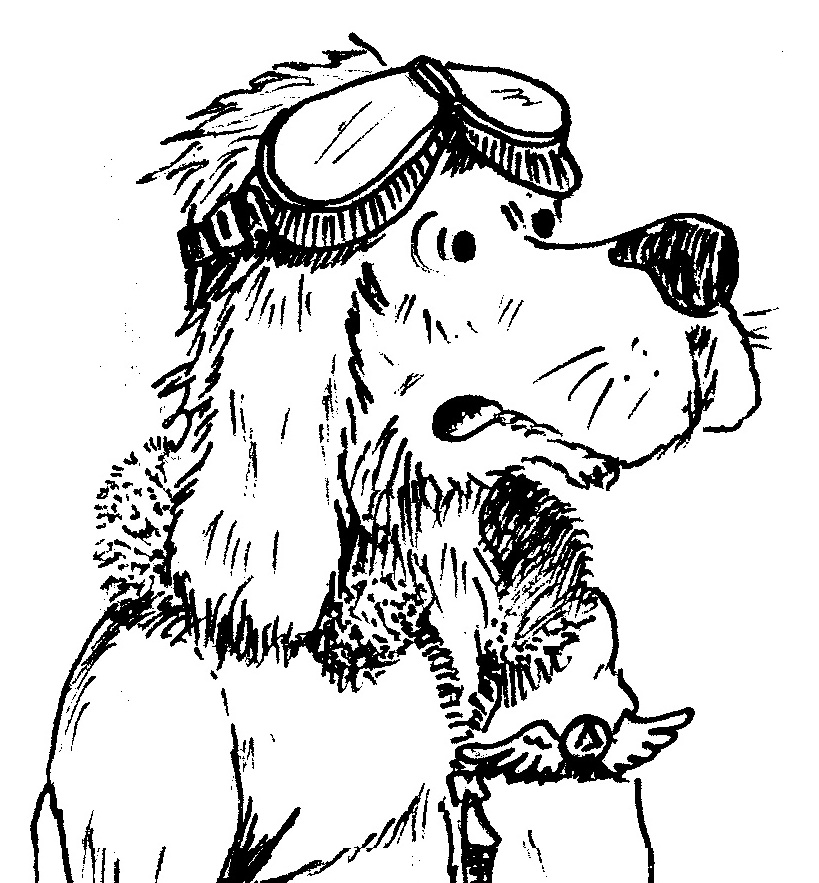 |
from The Big Sky Weekly Newspaper
|
|
by Thomas J. Nagorski
Physicians have a weird existence. "I spent sixteen hours up to my elbows in blood, rummaging around in a chest cavity, performing work which probably saved a life...." Firemen make my list, too. Live on perpetual call, ever vigilant for that moment when you drop everything to rush into an inferno. Stunt men do not top the professions most youngsters imagine when pondering careers. I can't imagine the daily routine of a nuclear missile launch controller, either. And a mortician's vocation boggles the mind. If "work" connotes a model of five-day-a-week schedules with 8-to-5 monotony, obtaining results with easily-replaceable labor, little passion, and little risk, then there are unique professions which do not fit the mold. Add flight instructing to this collection. To fly is to engage in an admittedly unusual act. Whether hopping along treetops chasing whims, or ensconced in finely crafted machinery at altitudes which require life support, aviation is an exciting blend of real and surreal, education and instinct. It takes control and discipline to ride a sled to the ground at 150 miles-per-hour then alight softer than a robin. It is an act of faith to believe that just because someone says a community exists half way around the world, you can venture aloft and find that oasis and not fall off the end of a flat earth. Engines and aerodynamics and charts and rules fill the pilot's day. They are tools of a trade understood by a minority. To most people aviators are either daredevils or super humans. Folks who think nothing of owning one-hundred-thousand-dollar motorhomes dismiss twenty-thousand-dollar pleasure planes as extravagant. If the act of commanding aluminum through the skies seems perilous to the ground-bound, then to willingly let unskilled students take the controls makes flight instructors appear down right suicidal. Thrill-seekers, at best. Snake oil salesmen, at worst, peddling dreams of adventure to an untrainable public. Do we teach people to fly or merely guide them along the path of discovery? How can anyone be taught such a thing? Can one learn to become a professional golfer? Are concert pianists made or born? Dreams of flight are as old to mankind as fear and death, and as natural. Yet, it is amazing that we regularly ignore the absurdity of humans frolicking amongst clouds. It is as unconventional as becoming a minister and conversing regularly with God. "Paradigm shift" is a phrase much overused and little understood. It aptly suits aviation. A paradigm is a model or an example. The first act in embracing aviation is shift one's own paradigms of convention and limitations. When flying changes from the mystical to the methodical, learning begins. One must dispose of inoperative stereotypes about risk, cost, talent, weather, physics, life. Approach each subject with the curiosity of a child and anything is possible. While one spouse was learning to fly, her husband ventured a prediction. "I've known my wife for twenty-five years. She is so controlled, the day she solos she will probably tell me, 'It went fine' as if we were speaking of an oil change." After the woman passed the milestone of first solo I asked the man if he had been correct. He grinned. "I've known my wife for twenty-five years," he said, "And I've never seen her more excited in my life! She telephoned her parents, my parents, the relatives, the neighbors. Her response was surprising." Flying does that to a person. Ignore self-imposed limitations, cast away useless paradigms, and you, too, can soar with the eagles. All it takes is a dream and a willingness to learn.
Happy (con)trails. See you upstairs --
|

.gif) (c) 1998, 2024
(c) 1998, 2024